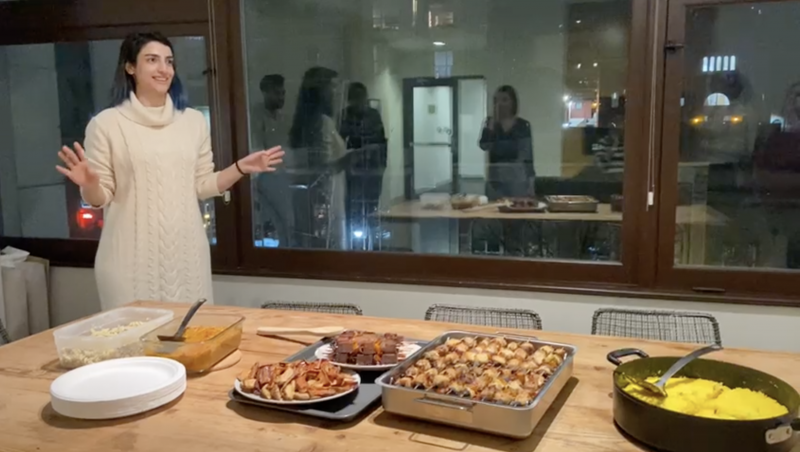Dinner at Sheyda’s
Dinner at Sheyda’s started out for me as a simple project doing everything I loved, cooking, hosting, hanging out with my friends, etc. However, it turned out to be a roller coaster ride for me!
The initial plan was to design a dining experience to build a community that could depend on each other in taking on the responsibility of co-creating a garden at ECU. The dinner was just an ice breaker, and activities that came after were supposed to put my guests (the participants) in a vulnerable space and strengthen their emotional bonds with each other.
Now, the first step was to actually invite my guests! I used an online invitation app to keep track of people who RSVP to cook based on the number of guests I’ll be serving. Since this project was a participatory one, I tried to warn my friends about it in my invitation:
Let’s get together and party before things get serious again!
You’ll be fed,
You’ll be entertained &
You may or may not become part of a research project!
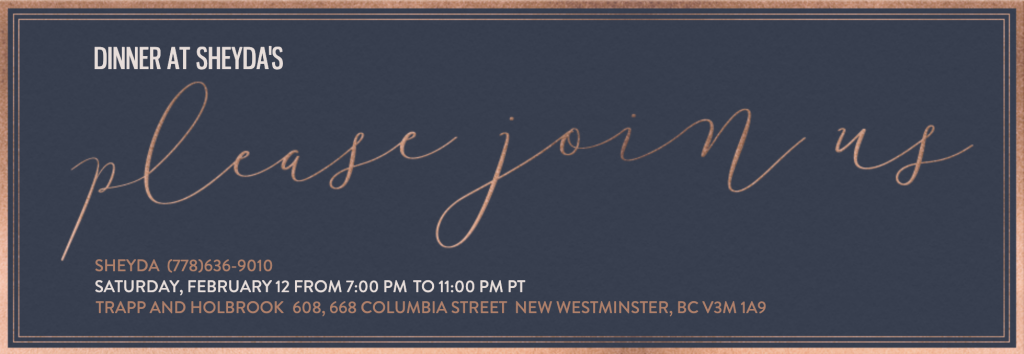
The next step for me was preparing the food. This is where things get a bit tricky. I managed to cook 5 different dishes to serve my guests, keeping in mind to have vegan and vegetarian options available. Luckily my good friend Sita was kind enough to come and help me out during the preparation time. But unknowingly, she became my saviour that night.
Unfortunately, an hour before my friends arrived, while I was preparing the last meal to serve on time of their arrival, my heatproof bowls cracked into my right hand when touched with boiling hot water. Sita managed to call the paramedics for me and help my partner with the instructions she was given to take care of me. As an attempt to not fall asleep, I began to tell Sita how to continue preparing the rice for the last dish, thinking the paramedics would put a few stitches and I would just go back to my dinner party. In the midst of all the chaos, the rice was overcooked (which is another interesting fact that we will go back to later in the story).
After 20 minutes, the paramedic arrives (I mean, not the best response time, right?!), and we realize there is no avoiding it! The dinner was cancelled and postponed to the day after! A few stitches and tetanus shot later, I was back in my home feeling awful. Not only I had been working hard for a couple of days to cook the meals, but I also ruined so many people’s schedules. I recked my first ever dinner hosting experience with an unforeseen accident. It was heartbreaking for me, thinking that this incident happened not because of a mistake I made but just without any reason. At this point, I remembered all those old and superstitious sayings that Persian aunties had when bad things happened unexpectedly and unreasonably, and it made me smile about how very different perspectives on life and its events coexist in the world.
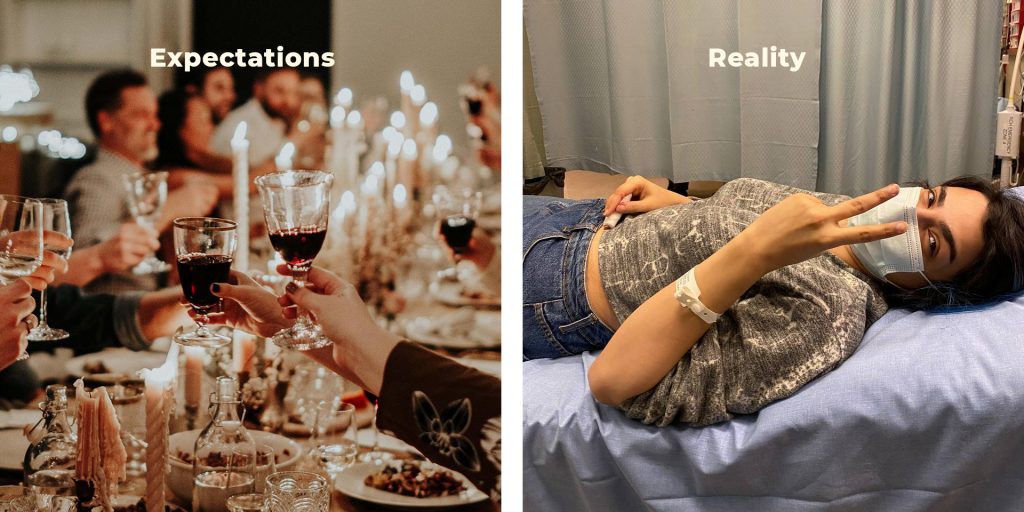
Of course, a few people couldn’t join us anymore the next day. But I was grateful that all my friends were so understanding, kind and cared for my well-being above all. Truly makes a person appreciate the life she has.
Moving on to the dinner party and the activities I had planned, the first activity was a mindful dining experience. My guests were asked to enjoy their first bites of the dinner in silence. It was quite an experience!
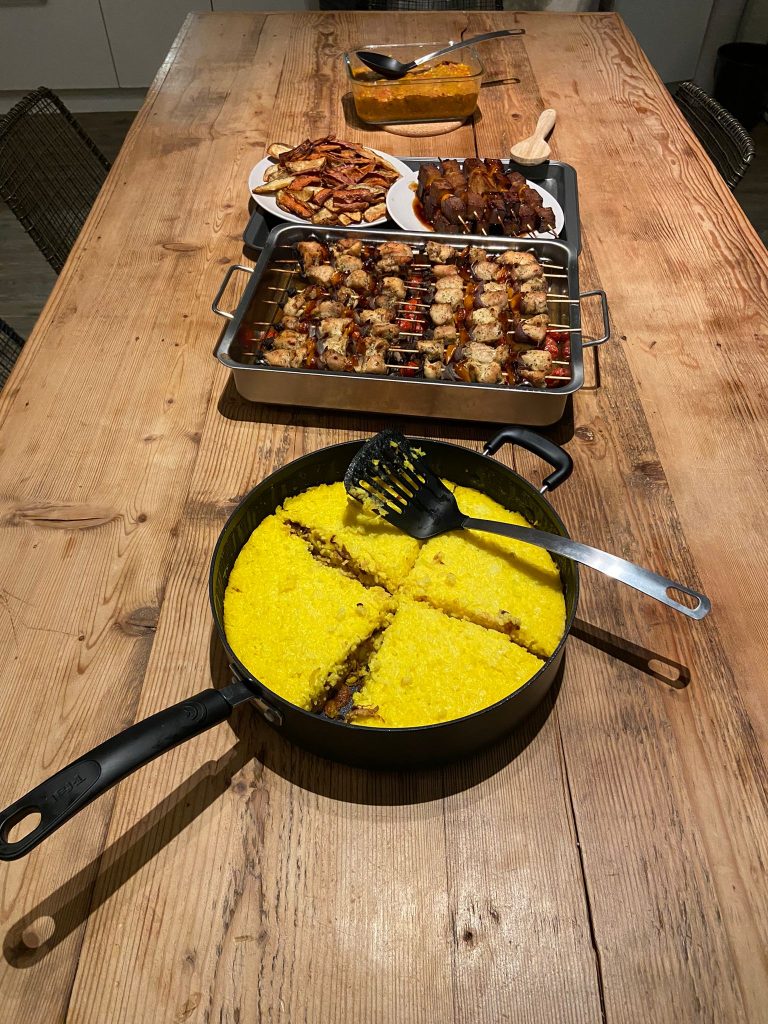
I came up with the idea when I was searching for various dining etiquettes or practices in Iran. I came across the fact that one of the dining etiquettes in the past was to not speak while eating. It was considered impolite to socialize while eating because they valued food greatly. Throughout the long history of Iran, people have suffered from starvation in different eras, and it made food precious in their views. To this day, my mom and grandmom kept telling us that we shouldn’t leave pieces of bread on the floor: Bread is invaluable, and you must learn to respect it! Bread is the labour of the farmers, the sweat of the bakers, and the endeavour of the family’s breadwinner.
It was interesting to see how a 5-minute silence during dinner time could make people feel awkward, self-conscious about chewing their food, and even try to control their laughter when they caught each other’s eyes. Sita told us about a group she knew in India that practiced mindful eating regularly while sitting in nature and eating from a banana leaf. Giulia and Leea talked about how they paid more attention to the food and the way they were going around it trying different pieces. You just had to be there!
The second activity was called “The Giving Birth”. I made 5 packets of unidentified seeds without knowing which packet belonged to which seed myself. My guests chose a number from 1 to 5, and each of them got a seed starter pot and a few seeds from their chosen packet to plant. In other words, they gave birth to their baby plants. They were also encouraged to name their plants and design the pot with markers. Then I, as the nanny, took away their babies to look after for a while.
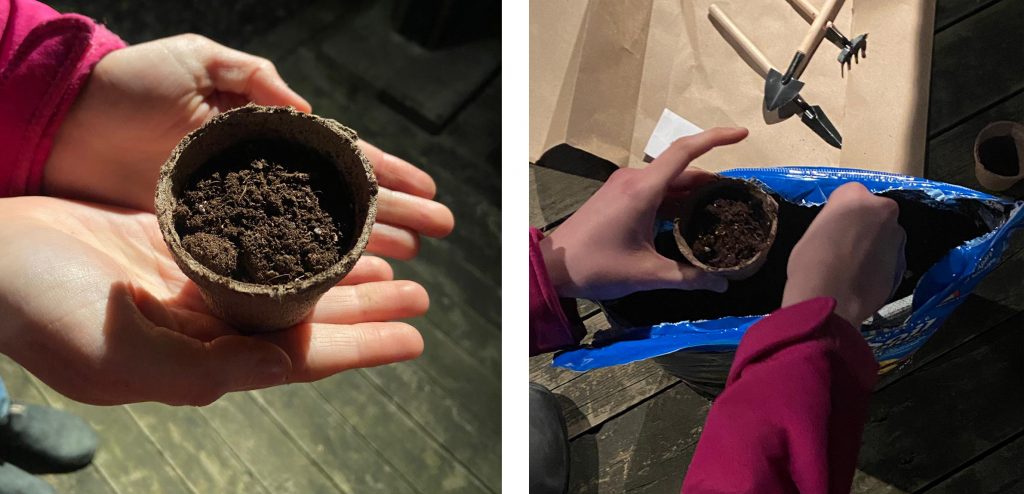
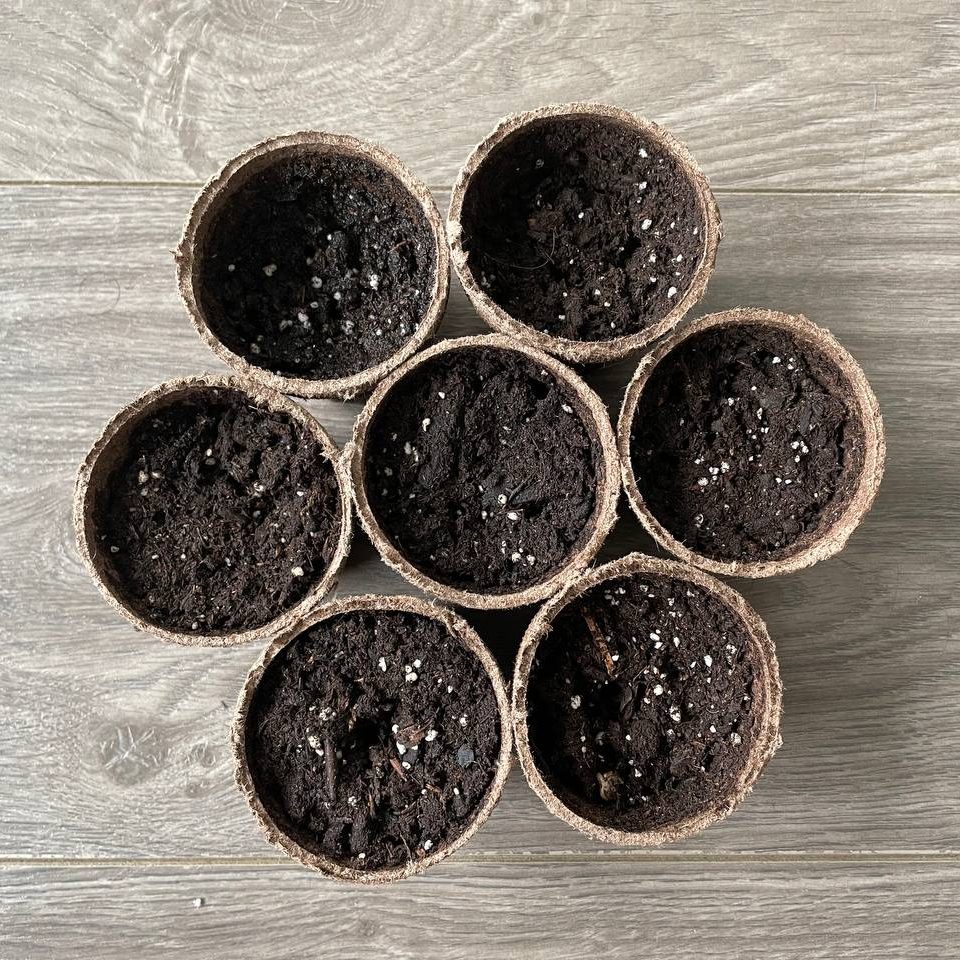
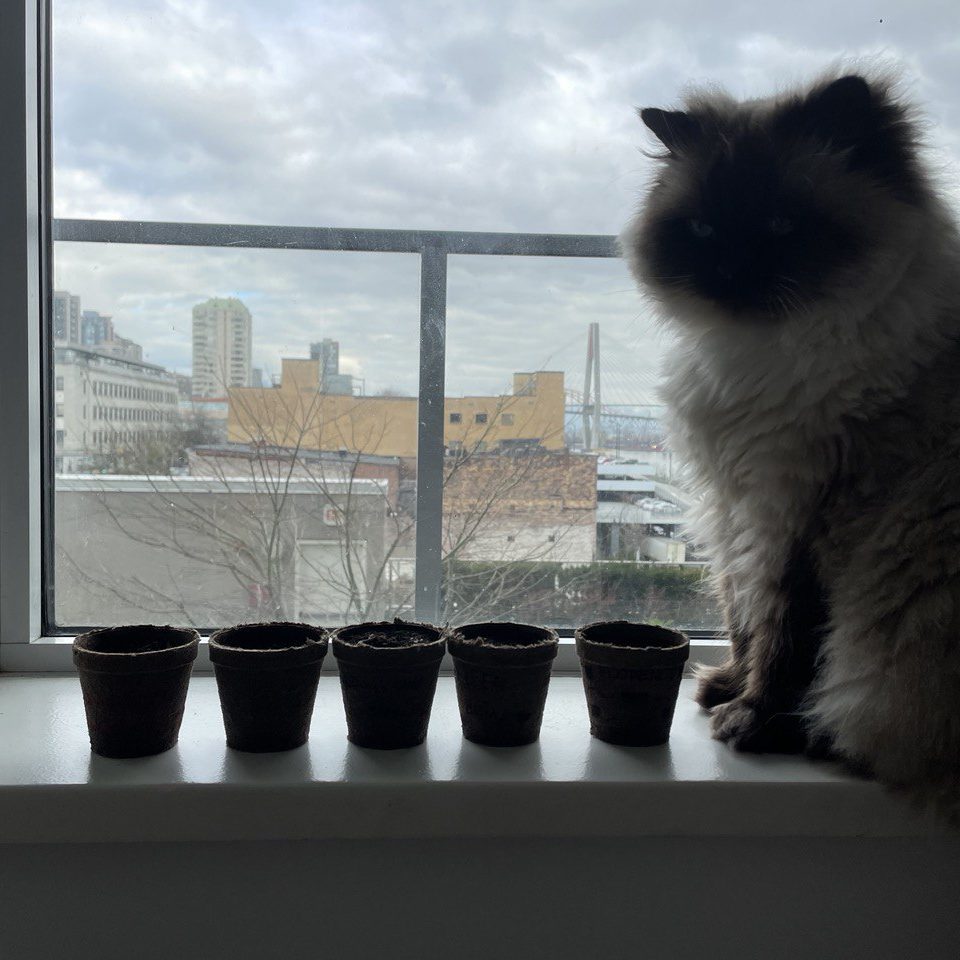
There is going to be more to this story; however, for now, we’ll just have to wait and see when the babies germinate and bloom.
Now you might think I forgot about the overcooked rice, but I didn’t! I made lemonade with them! I tried my best to salvage the rice for the final dish of the dinner party, and I was fairly successful. But I still had a pot of overcooked, mushy rice that I didn’t see any choice but to make “Sholeh Zard” with. Overcooked rice is an essential ingredient of this Persian dessert. It turned out to be a good shift of purpose for the rice. I even took some cups of Sholeh Zard to the Campus, and people I didn’t know wanted to try them.
Now I’m wondering about what we can do with those recipes that we mess up. How can we change the dish to fit our seemingly ruined ingredients for another recipe? Is there a way to create a cookbook that will give you options when you mess up a recipe? How can we use those housewives tricks that my mom used to salvage her food to minimize our food waste?
